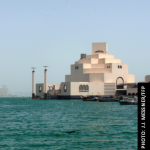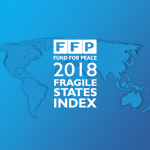BY PATRICIA TAFT
In a year of rapidly shifting priorities, alliances and politics across the greater Middle East, the small oil and gas-rich nation of Qatar took the greatest fall in the 2018 Fragile States Index (FSI). With a native population of barely 300,000 and a gross annual GDP of nearly US$181 billion, Qatar has faced increasing pressure from its Gulf nation neighbors for several years, culminating in the 2017 blockade imposed by Saudi Arabia, the United Arab Emirates, and Bahrain. While the full financial and political impacts of the ongoing blockade are yet to be fully realized, the move to isolate Qatar by its neighbors has already had wide-ranging regional and international impacts.
The isolation of Qatar, which culminated in the June 2017 blockade, was a long time in coming – although, several key events during the year may have accelerated its course. For years, Saudi Arabia and its Gulf allies have accused Qatar of supporting Iranian interests in the region and encouraging wider regional revolutionary tendencies – from financing Iranian-linked proxies in the conflicts in Syria and Iraq to supporting Egypt’s deposed Mohammed Morsi and the Muslim Brotherhood. The Qatari-based and financed news network, al Jazeera, has also long been a thorn in the sides of Gulf Arab monarchs, for whom its coverage is often seen as critical.

